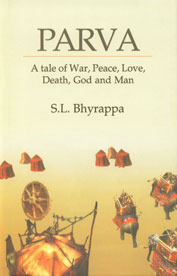What do you think?
Rate this book


950 pages, Hardcover
First published January 1, 1979
‚ÄúWhat is the point of living? What does it matter if one is alive or dead? Why not die this moment? Why die 50 years hence? The goal of life is liberation from the poisonous wheel of life and death. There is no real liberation without the renunciation of the world of desire and selfishness. But, logically, if that is renounced, one has no rationale for living. Only those afraid of death may have to live. But then those fearing death are persons who have not given up their entanglement with the worldly self.‚Ä�
‚ÄúIt is essential to have an enemy. If there is none in reality, one must create the illusion of having one. Otherwise how can one achieve and maintain political unity within the kingdom?‚Ä� How can one enjoy security of power and position? Yes, we need an enemy to keep us going!‚Ä�